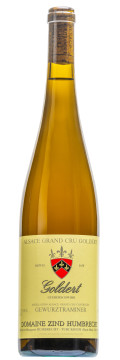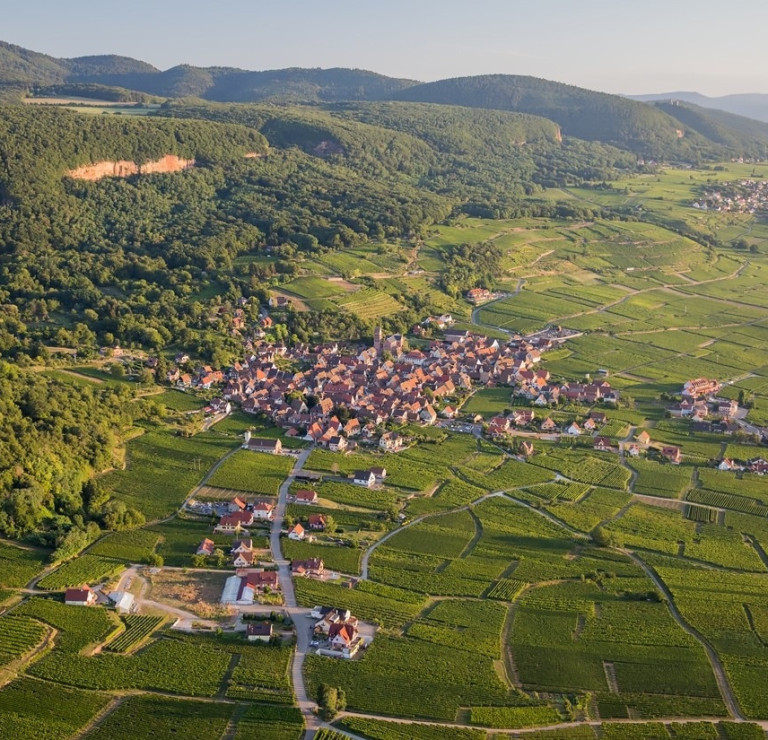
Technical presentation
| Bottling : | September 2005 |
|---|---|
| Acquired alcohol : | 15.9° |
| Residual sugar : | 10.6 g/l |
| Total acidity : | 2.5 g/l H2SO4 / (3.8g/l Tartrique) |
| pH : | 3.9 |
| Yield : | 47 hl/ha |
| Average age of vines : | 21 years |
| Terroir : | Grand Cru Goldert |
| Sweetness index : | 1 |
| Soil : | East facing, Gentle slope, Oolithic calcareous and marls siliceous |
Description of the wine Gewurztraminer Grand Cru Goldert 2004
The Goldert faces full East on a gentle slope. While driving along the wine route, the traveller could wonder how this vineyard can be classified Grand Cru, when compared to much steeper neighbouring vineyards. Well, the answer is in the soil: a unique pure calcareous rock (oolithic), that brings structure and flavours to the extravagant Muscats or Gewurztraminer (traditional grapes, even if Riesling and PG is more planted today). The association of a slow ripening soil and a cooler local climate, obliges the vines to take more time in the ripening process, allowing a development of more flavours and better structure in the wines. The ripeness of the 2004 was quickly transformed into a powerful style wine by the indigenous yeasts. The crop was mostly healthy (presence of noble rot) despite being harvested at the end of the harvest.

Tasting notes
01/2006 : Usually quite flowery, the Goldert develops a much more mineral nose in 2004 (roses, spices, leather…). The palate is rich, concentrated, with a strong earthy/spicy profile. The presence of residual sweetness is well hidden behind a powerful style, quite different from the two previous wines.

The Goldert Grand Cru of Gueberschwihr
The Goldert of Gueberschwihr is the only locality in Alsace where the geological substratum is composed solely of marine oolithic limestone. Traditionally, the majority of the Goldert is planted to Gewurztraminer and Muscat. These grape varieties are reputed for producing wines with great finesse, structure and a discreet, however complex, bouquet.